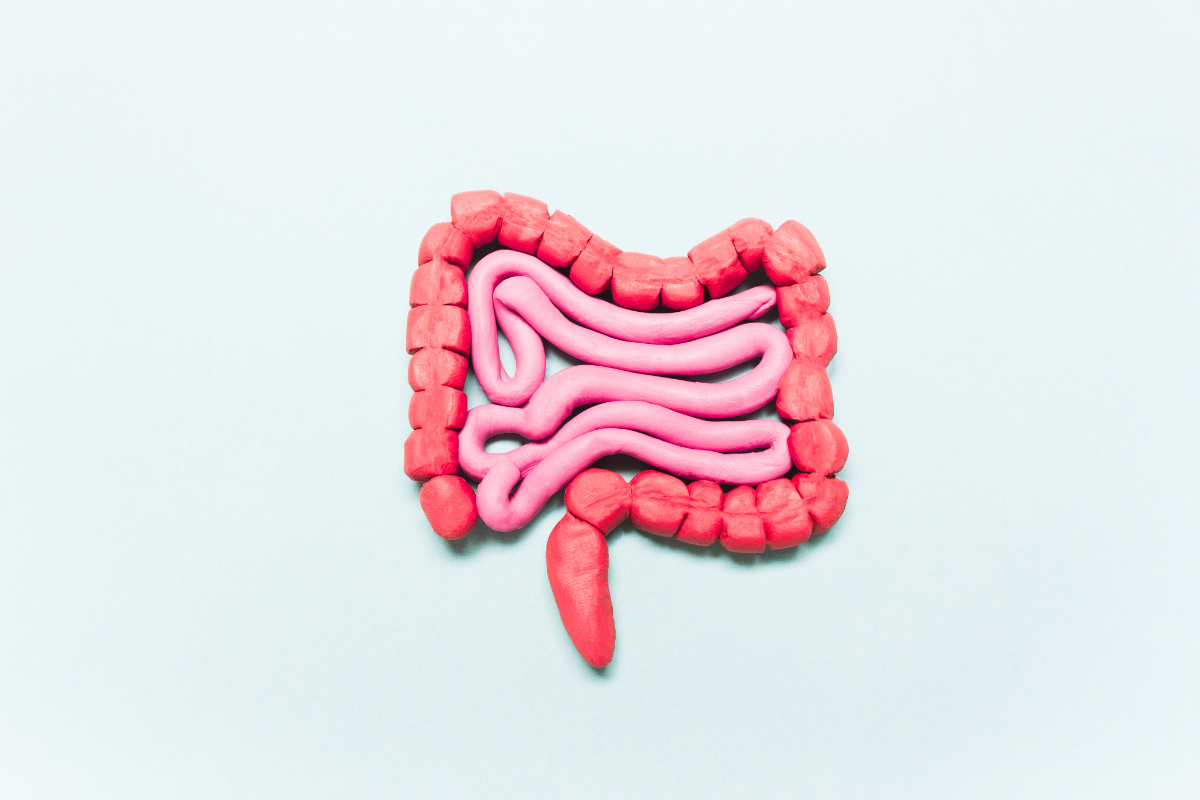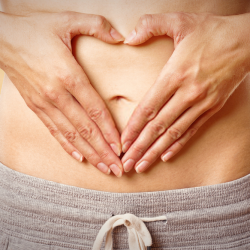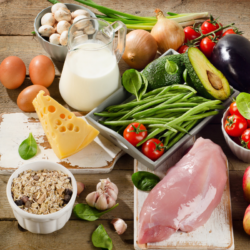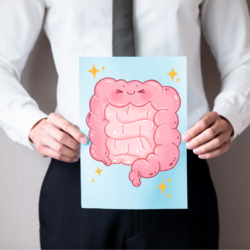The intestinal barrier plays a crucial role in our body’s health, controlling what enters and leaves our digestive system. It prevents unwanted substances from entering our bodies and allows the absorption of essential nutrients. However, a breakdown in this barrier can lead to a variety of health problems. In this article, we will explore the mechanisms of the intestinal barrier and how to keep it healthy.
What is the intestinal barrier?
The intestinal barrier is a semi-permeable structure that allows for the absorption of essential nutrients as well as immune detection. In addition, it prevents the passage of pathogenic molecules and bacteria. Structural and molecular components act together to perform this complex but essential function of the gastrointestinal tract.
The mucus layer forms a sieve-like structure over the intestinal epithelium. In addition, it secretes antimicrobial peptides(AMPs) andIgA molecules: these are the immune-sensitive and regulatory proteins. The intestinal epithelial cells (IEC) form a continuous monolayer. This is because they are closely linked to each other by junctional complexes. In this regard, tight junctions are located on the apical side of the cells and regulate the transport of small molecules and ions. Adhesion junctions and desmosomes provide tight cell adhesion links and help maintain the integrity of the intestinal barrier. The lamina propria contains immune cells (e.g. T-cells, B-cells, macrophages and dendritic cells) of the adaptive and innate immune system that participate in the immunological defence mechanisms of the gut barrier.
What are probiotics?
Probiotics are a combination of beneficial bacteria and/or yeast that live naturally in your body. Bacteria are usually seen in a negative light, as something that makes you sick. However, there are two types of bacteria that live in and on our bodies all the time: good and bad bacteria. In fact, probiotics are made up of beneficial bacteria for the body. In short, these good bacteria help us in many ways. Not least by fighting the ‘bad’ bacteria.
Moreover, probiotics are part of a vast community: the microbiome. Indeed, this community is composed of organisms called microbes. In short, we have trillions of microbes on and inside the body. These microbes are a combination of :
- Bacteria.
- Fungi and yeasts
- Viruses
- Protozoa
However, we all have our own microbiome.
Good bacteria & gut barrier:
Although the clinical implication of probiotics was first highlighted in 1954, most progress in probiotic research has only been made in the last two decades. In addition to this, the main organ system targeted by probiotic research has been the gastrointestinal tract. In fact, the three main probiotics used in these studies are Lactobacillus, Bifidobacteria and Saccharomyces.
Moreover, numerous studies have highlighted the benefits of probiotics on the intestinal tract. Here is a non-exhaustive list:
- Prevention and relief of non-specific and irregular complaints of the gastrointestinal tract, in healthy people.
- Beneficial effects on inflammation and other disorders related to inflammatory diseases of the gastrointestinal tract, Helicobacter pilori infection or bacterial overgrowth.
- Normalization of stool passage and stool consistency in subjects with intestinal obstruction or irritable bowel.
Intestinal barrier and SIBO
Gastrointestinal symptoms similar to irritable bowel syndrome may be present in patients with small intestinal bacterial overgrowth or SIBO, as both conditions cause similar problems in the body. In addition, SIBO can also cause systemic reactions when the bacteria stimulate inflammatory cytokines in the gut. These cytokines can disrupt the intestinal lining, leading to inflammation and increased permeability, allowing food particles and toxins to enter the bloodstream and disrupt the immune system. Read our article on natural treatments for SIBO.
What impact does our diet and lifestyle have on gut function?
There is growing evidence of the role of a balanced diet and healthy lifestyle on gut homeostasis and the integrity of the gut barrier. Firstly, the effects on the barrier can be direct by inducing abrupt epithelial cell damage and intracellular signalling responses. Secondly, indirectly, by acting on the intestinal microbiota.
Diet:
Of course food is an important source of nutrients. However, they also serve as a modulator of various physiological functions in the digestive tract: In particular, the function of the intestinal barrier. Flavonoids are an example of plant-derived compounds that have beneficial effects on the epithelial barrier. In summary, they are abundant in most vegetables, fruits, green and black tea, red wine, chocolate and coffee. Nevertheless, it is estimated that the normal population intake of flavonoids is below the threshold for significant beneficial effects. Indeed, this suggests the need for supplementation in addition to the normal diet in susceptible individuals.
Recently, there has been much interest in industrial food additives. Indeed, they are associated with intestinal barrier dysfunction and an increase in immunity-related diseases. Today, carboxymethylcellulose and polysorbate-80 are two of the most commonly used additives in the food industry. It is worth mentioning that they can be recognised on food labels by their E-number. In fact, additives of this type are often used to improve the quality of food. Despite this, when administered to subjects at relatively low concentrations, they induced a reduction in mucus thickness, increased contact of bacteria with the epithelium, increased permeability to dextrans and low-grade inflammation.
Secondly, with regard to vitamins, minerals and trace elements: Deficiencies of vitamin D, vitamin A and zinc have been found to compromise the intestinal barrier. In addition, they increase the risk of infection and inflammation.
Alcohol:
Studies on the effects of alcohol consumption on the intestinal barrier have shown a consistent increase in intestinal permeability in various subjects. Alcohol and its main metabolite, acetaldehyde, have been found to decrease barrier function in the small and large intestine by directly damaging epithelial cells as well as by activating oxidative stress responses. The microbiota is also a central mediator of the effects of alcohol, as it is involved in the production of acetaldehyde through bacterial metabolism. In addition, it has been shown that normal microbial balances in the gut are affected by chronic alcohol abuse (leading to an increase in Gram-negative bacteria).
Medication:
Nowadays, non-steroidal anti-inflammatory drugs are well known for their adverse effects on the gastrointestinal tract. In addition, they are often prescribed in combination with proton pump inhibitors (PPIs): these reduce the incidence of NSAID-induced gastroduodenal injury. However, the combination of NSAIDs and PPIs does not protect against small and large bowel damage. Indeed, it may even worsen the individual effects of the drugs on the intestinal mucosa.
It should be noted that prolonged use of NSAIDs leads to inflammation of the small intestine in over 70% of patients. In addition to the indirect effects of cyclooxygenase inhibition, NSAIDs are thought to cause direct damage to the surface epithelium. In addition, they uncouple oxidative phosphorylation in the mitochondria, leading to a reduction in intracellular ATP production. As a result, this leads to a deregulation of actin-myosin complexes that regulate the intercellular junction proteins.
Cigarette smoking:
Overall, the current findings regarding the impact of smoking on the intestinal barrier are highly contradictory and cannot explain the divergent effects in IBD. The potential benefit of smoking on the intestinal barrier certainly does not outweigh the well-known risks. We believe that smoking may indeed have a tightening effect on the intestinal barrier, as shown in a simplistic model such as Caco-2cells, but that this effect may be reversed in vivo under the influence of many confounding elements, including genetic background, disease-specific stimuli, intestinal localisation, type of smoke exposure and interaction with immune and microbial factors.
Stress:
Recent work has focused on exercise-induced stress. Exercise-induced stress is thought to be a combination of physical and psychological stress. As a result, athletes often suffer from abdominal disorders induced by the release of stress hormones during intense physical activity. In addition to the effects described above, the redistribution of blood flow out of the intestines, the increase in body temperature and microbial changes during intense or prolonged physical activity may promote loosening of tight junctions and inflammatory responses. Increased permeability has also been observed in soldiers undergoing combat training. However, the pathways underlying the different types of stressors appear to be quite similar, but the magnitude of the responses may depend on the duration of the stimulus, genetics and individual life experiences.
Care & Nature solutions to pamper your gut barrier on a daily basis
- Probiotics
- Supplements beneficial for the intestines
- Zinc
- L-glutamine
- Collagen peptides
- Psyllium
- Curcumin
- Berberine
- Vitamin D
- Calcium
- Iron
- Magnesium
- Recovering sleep.
Sources:
- https://www.ncbi.nlm.nih.gov/pmc/articles/PMC8290731/
- shorturl.at/nwBIJ
- shorturl.at/ejxN4
- shorturl.at/dDIKO
- shorturl.at/aikoK
- shorturl.at/fjFW7
- shorturl.at/mvwEQ





